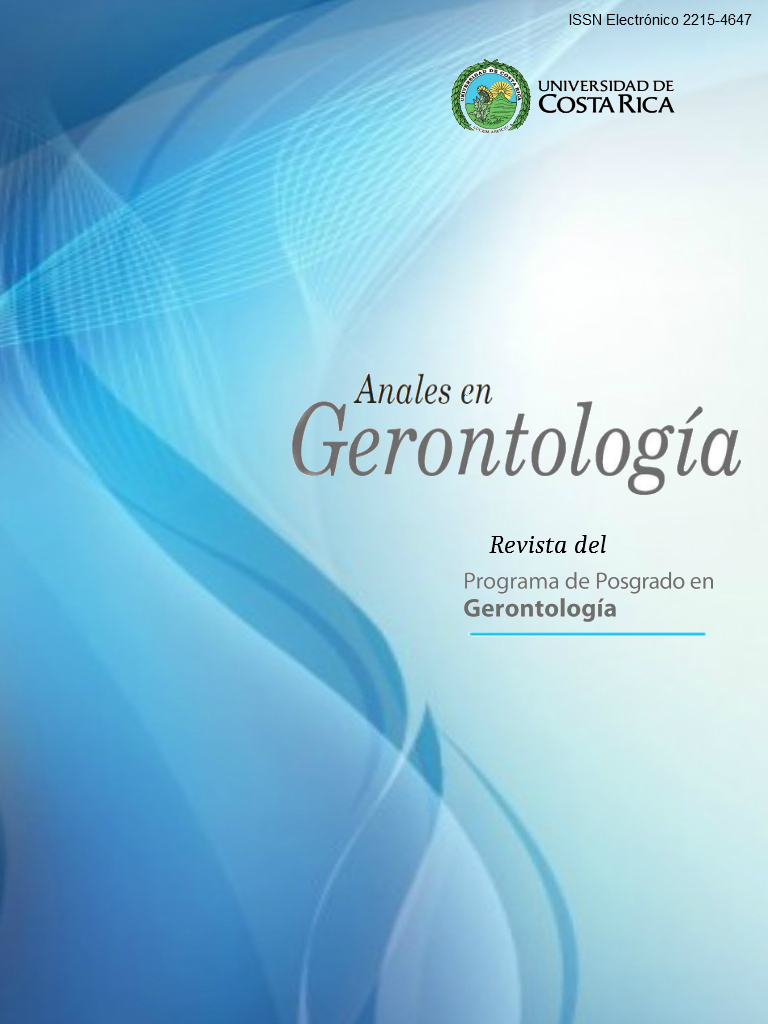Abstract
The Covid-19 pandemic made the loneliness and isolation of the elderly visible, where the ATM (emotional support phone for the elderly) arises as an intervention device, to decrease loneliness and contribute to generate positive emotions. In it, a group of volunteers delivered company through the telephone to elderly who were lonely or feeling lonely during april and july 2020. This study aims to measure the results of this intervention carried out on a group of 72 elderly people who were delivered from municipal and state devices from Santiago de Chile in which questionnaires were applied via telephone (ESTE II and SPANE). The evidence has allowed us to reflect on and understand the results we obtained, in light of the multi-causality and complexity of loneliness where action is required from different areas for greater efficiency. Results indicate the inexistence of significant statistical variation in social loneliness and positive/negative emotions and affective balance after ATM, however, there is evidence of improvement or maintenance of perceived loneliness in one group.
As a conclusión, this device of emotional support (ATM)can be a beneficial tool for the elderly, possible even to be used in non-pandemic period, since it can promote positive emotions and improve the perception of loneliness, but it has to be used with other interventions in order to achieve an integral approach of the cases.
References
Barros, M. y Sosa, B. (2011).Adaptación cultural de la escala este para medir soledad en adultos mayores. Revista Eureka,8(1), 92-99.
Diener, E., Suh, E.M., Lucas, R.E. & Smith, H.E. (1999) Subjective well-being: Three decades of progress. Psychol. Bull., 125, 276-302.
Diener, E., Oishi, S., Lucas, R.E. (2003). Personality, culture, and subjective well-being: Emotional and cognitive evaluations of life. Annu. Rev. Psychol, 54, 403-425.
Diener, E., Wirtz, D., Kim-Prieto, C., Choi, D., Oishi, S. & Biswas-Diener, R. (2010). New well-being measures: Short scales to assess flourishing and positive and negative feelings. Soc. Indic. Res., 97, 143-156.
Herrera, S., Fernández, M., Elgueta, R., Giacoman, C., Leal, D., Rubio, M., Marshall de la Maza, P. y Bustamente, F. (2021) Calidad de vida de las personas mayores chilenas durante la pandemia COVID-19. Centro de Envejecimiento y vejez, Pontificia Universidad Católica de Chile, UC e, Instituto de Estudios Avanzados Universidad de Santiago, USACH. https://sociologia.uc.cl/wp-content/uploads/2021/07/libro_calidad-de-vida-pm-y-covid-19-.pdf
Ministerio de Desarrollo Social (2017). Adultos mayores: CASEN Síntesis de resultados observatorio social.:
Pavot, W., & Diener, E. (2013). Happiness experienced: The science of subjective well-being. In S. A. David, I. Boniwell, & A. Conley Ayers (Eds.), The Oxford handbook of happiness (pp. 134–151). Oxford University Press.
Pinazo, S. y Bellegarde, M. (2018). Estudios de la Fundación Pilares para la autonomía personal.. La soledad de las personas mayores. Conceptualización, valoración e intervención.
Pontificia Universidad Católica de Chile (2020). Chile y sus Mayores: Resultados V Encuesta Nacional Calidad de Vida en la Vejez 2019 UC–Caja Los Andes. Recuperado de: http://www.senama.gob.cl/storage/docs/QUINTA_ENCUESTA_NACIONAL_DE_CALIDAD_DE_VIDA_EN_LA_VEJEZ_2019._CHILE_Y_SUS_MAYORES_2019.pdf
Real Academia Española [RAE]. (2021). Definición de soledad. https://dle.rae.es/soledad
Rubio, R. (2004). La soledad en las personas mayores españolas. IMSERSO.
Rubio, R. (2007). La problemática de la soledad en los mayores. Infad. Revista de Psicología, 19(2), 11-27.
Rubio, R. (2009). Variables relacionadas con los estilos de vida y su influencia en las actitudes frente al envejecimiento. Revista Psicológica Herediana,2 (1).
Rubio, R., Pinel, M. y Rubio, L. (2010). La soledad en los mayores. Una alternativa a la medición a través de la escala ESTE. IMSERSO.http://envejecimiento.csic.es/documentos/documentos/rubio-soledad-02.pdf
Yusta, R. (2019). La soledad no deseada en el ámbito de la gerontología. Revista Trabajo Social Hoy del Colegio Oficial de Trabajo Social de Madrid, (88), 25-42.https://www.trabajosocialhoy.com/articulo/239/la-soledad-no-deseada-en-el-ambito-de-la-gerontologia/

